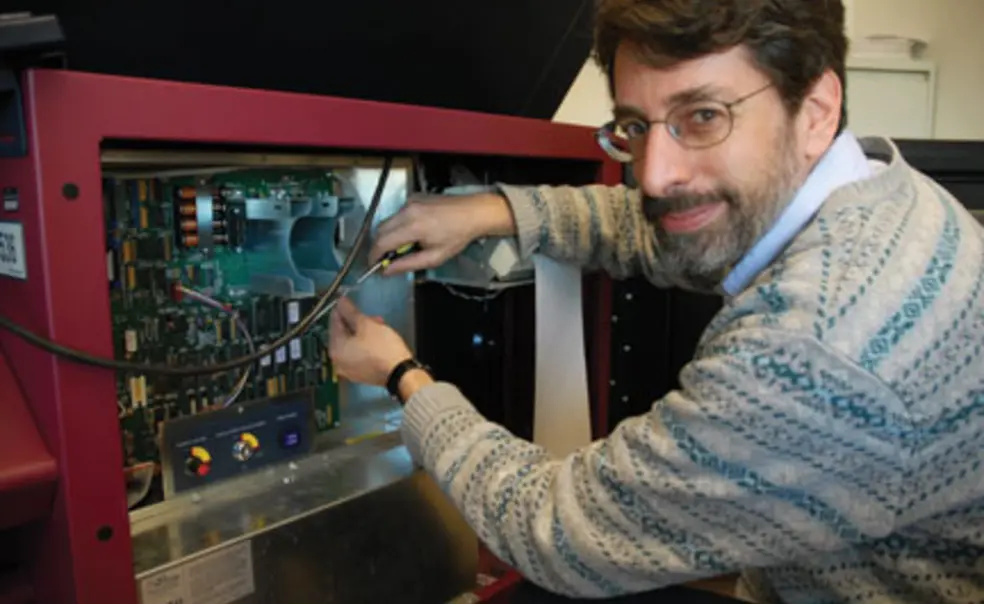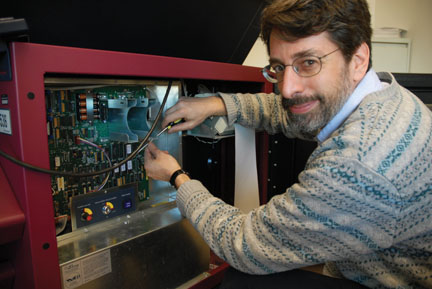A moment with...Andrew Appel '81
This fall Princeton computer science professor Andrew Appel ’81 has been teaching a freshman seminar called “Election Machinery,” about the technology of how we vote and the history of electoral cheating. Appel last offered the course in 2004, which was not only the last time Americans voted for president but also the year he was asked to serve as an expert witness by plaintiffs suing New Jersey over the state’s use of paperless voting machines (plaintiffs say the machines are highly vulnerable to computer hackers). Appel spoke to PAW at the end of September.
Last year, in an Internet auction, you bought five Sequoia voting machines from North Carolina, for a total of $82. What did you learn from examining them?
This is probably a naïve question, but is it likely that people have been trying to tamper with voting machines?
What about paper ballots? After I’ve watched my vote go into a ballot box, is it secure?
Why haven’t the manufacturers been able to fix these problems?
Should I trust the results this year?
Interview conducted and condensed by Merrell Noden ’78













No responses yet